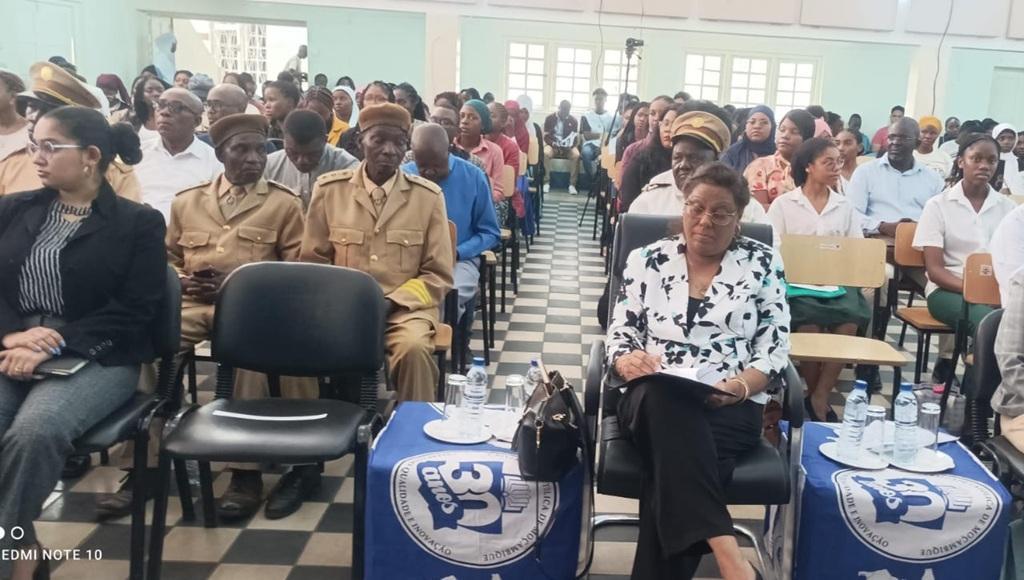Africa-Press – Mozambique. Nampula province, in northern Mozambique, recorded more than 1,800 gender-based violence (GBV) cases which culminated in deaths last year, Ikweli reports. According to the same source, two of these cases “were proven to be the result of femicide”.
The information was shared with the press this Wednesday (21-05) by Zunura Zubaire, clinical and counselling psychologist at the Integrated Care Office for Victims of Violence, (GAIVV) at Nampula Central Hospital, Ikweli reports.
“Looking at feminicide would be a very small scale, however, there have been cases of serious domestic violence. We know that feminicide is physical violence at its extreme level, which means that if a victim suffers domestic violence several times, it can end in feminicide,” Zubaire explained.
To prevent such an outcome, Zubaire encourages women to report cases of violence early, so that they can extricate themselves from the situation and benefit from psychological support.
“To understand the causes, how it started, how she has been going, how long she has been experiencing that situation (…) because at some point some women feel trapped in reporting it due to emotional and economic dependence and they rarely seek help. When they do seek help, we provide greater support, including psychological assessment and emotional support,” she details.
Forensic doctor Bainabo Parruque revealed that sometimes the sector has faced difficulties in identifying the causes of death of a woman who is a victim of violence, because some families, especially those who profess the Muslim religion, are reluctant to have an autopsy.
“We have to make an effort to explain to families the importance of performing a forensic autopsy to determine the cause of death. We have often had controversies and knowing that the family is in a situation of loss, we have to work much harder to provide information so that people know that femicide is a crime,” Parruque says.
On the other hand, doctor Parruque believes that there are families who cover up the real causes of a relative’s death.
“We have been paying attention to cases of women who lose their lives at home in unclear ways, but when they arrive at the health unit they tell a story that the person suffered from hypertension. However, the injuries lead us to believe that this woman was already suffering violence and we ended up leaving it as a crime of physical assault (…) at least in the forensic medicine service we reported two cases.”
More than 4,000 cases were filed with the IPAJ
Spokesperson of the gender office of the Institute of Legal Assistance and Sponsorship (IPAJ), in Nampula province, Irene Cabral, shared with Ikweli that in 2024, the sector reported 4,232 cases of domestic violence.
Cabral explained that, as a recently declared crime, feminicide is not classified in the penal code, so many cases are classified as aggravated homicide with sentences ranging from 20 to 24 years in prison.
“It is a crime that is increasingly on the rise in Mozambican society. We have lost many students and women and we are crying out for help because society cannot be made up of crimes,” Cabral said.
With this in mind, she believes that there is an urgent need to include this type of crime in the penal code or in the domestic violence law, “we can fight for it to be classified so that the aggressor or murderer receives a severe sentence”.
The sources were speaking as part of a round table organized by the Faculty of Education and Communication in partnership with the office of the wife of the governor of Nampula, with a view to discussing and understanding the root of cases of gender-based violence that have recently culminated in feminicide, as outlined by academic Lino Marques Samuel in his speech.
“Reflect on social roles and think together about the path to prevention and transformation. This round table seeks to provide a space for open and interdisciplinary dialogue. This exchange between academic knowledge and lived experience is essential for the debate to be complete, sensitive and effective”.
Nazira Abdula calls for greater vigilance
In turn, the wife of the governor of Nampula Province, former Health Minister Nazira Abdula, called for greater vigilance from society in protecting women, young girls and girls against the wave of feminicide that has reached alarming proportions in recent months.
Nazira Abdula draws attention to the prevention of feminicide to ensure that women do not feel alone, but to this end, she believes that there is an urgent need for schools that teach respect, health services that welcome with care and dedication, and also a justice system that, above all, protects.
“I would like to urge everyone to be vigilant and report all acts of violence against girls. We must report any sign of suspicion.”
On the occasion, the governor’s wife reaffirmed her commitment to continue promoting women’s rights.
Beliefs that the root of feminicide stems from past traumas…
Ikweli interviewed some students who attended the meeting. They believe that the root of gender-based violence, as well as feminicide crimes, stems from traumas experienced during childhood.
“This situation comes from our parents, because that is where the child is born and reaps everything that the parents do. If the parents are in that environment of aggression, they can easily become aware of it. My idea is that parents should avoid such practices,” Vinildo Afonso said.
Patrícia Pequenino, also a student, calls for greater appreciation of women, “and men should know that we have rights. They should not look at us as people without logical reasoning, we are also people and we have the right to live like everyone else”.
For More News And Analysis About Mozambique Follow Africa-Press






